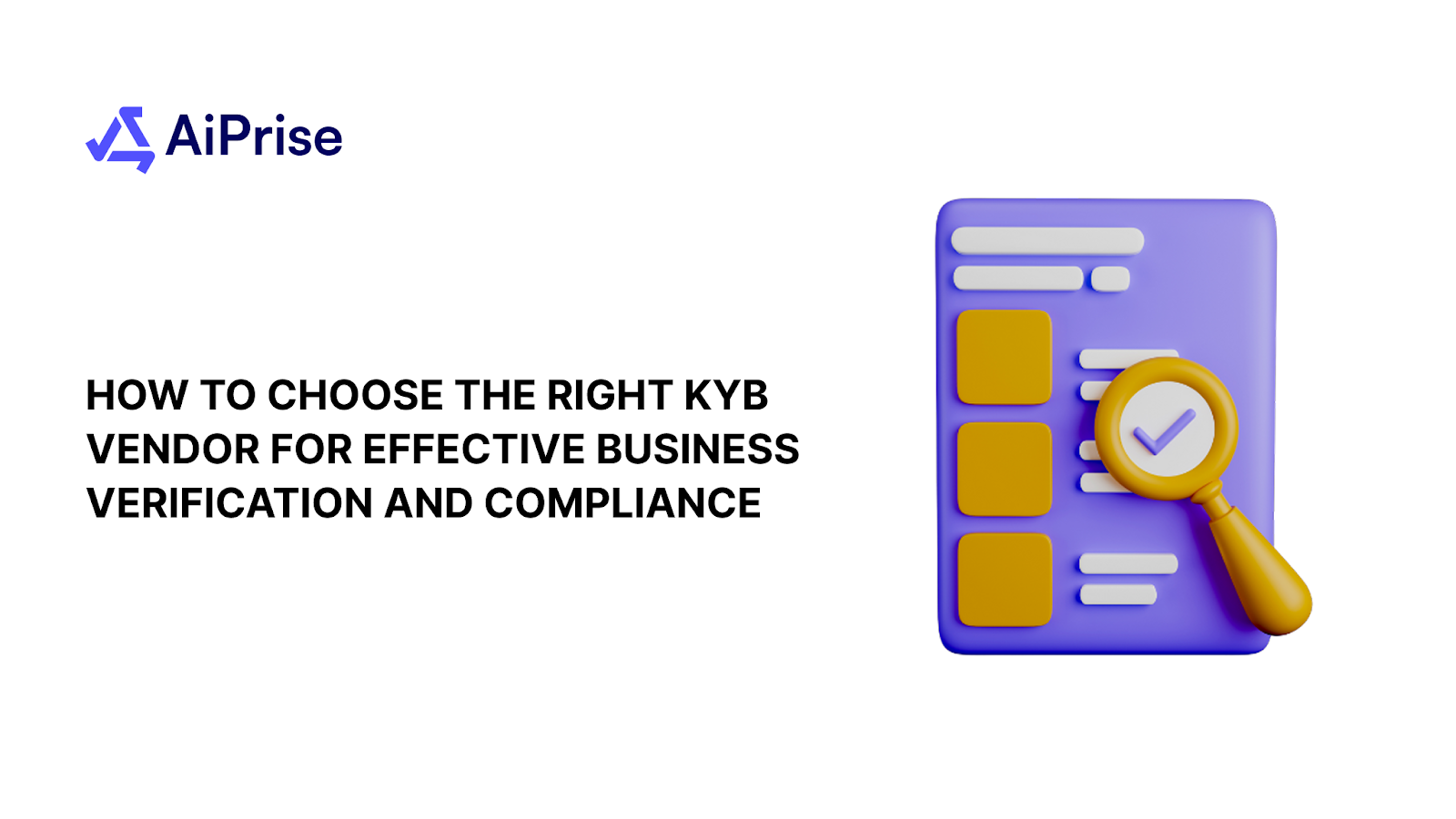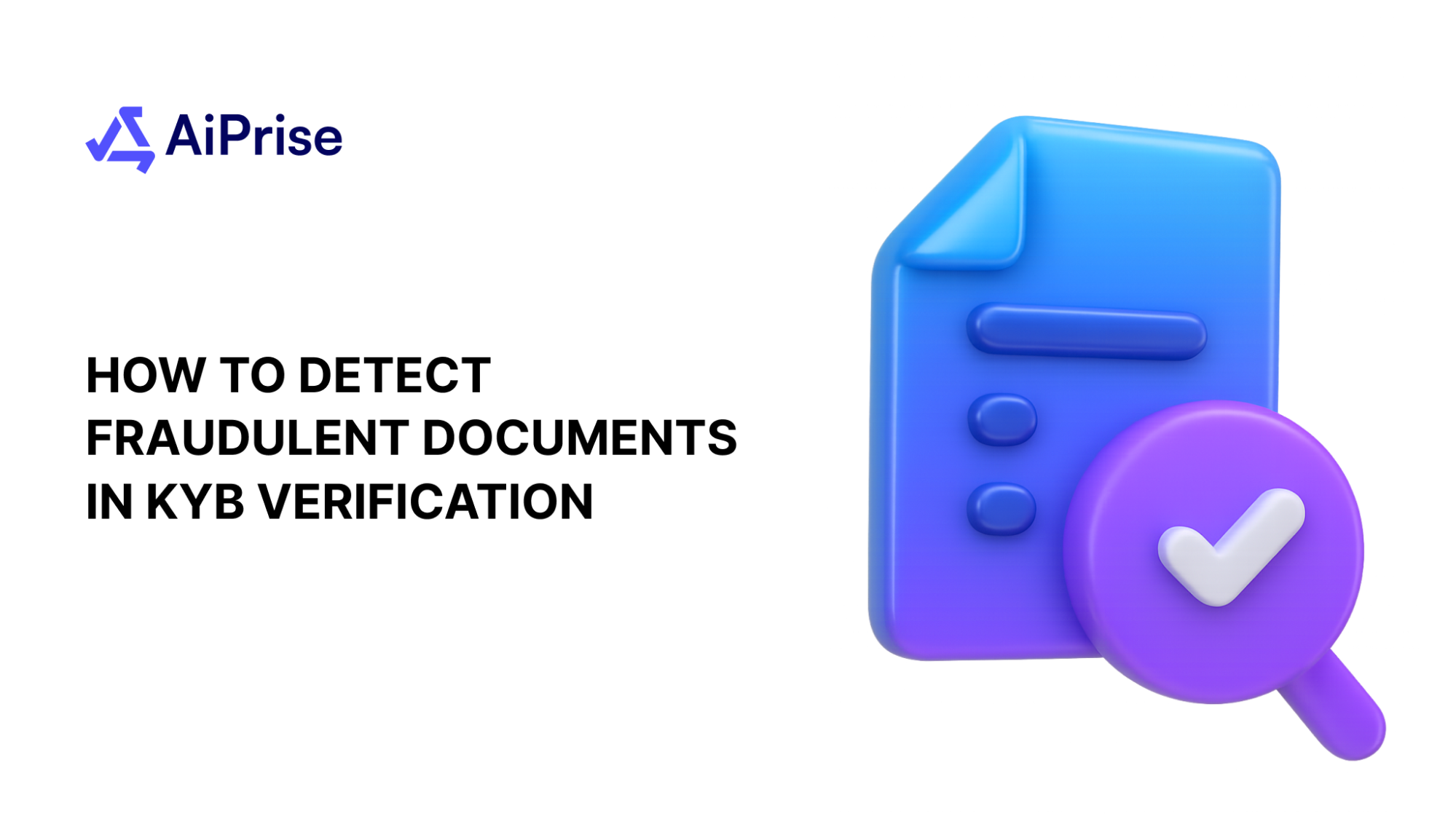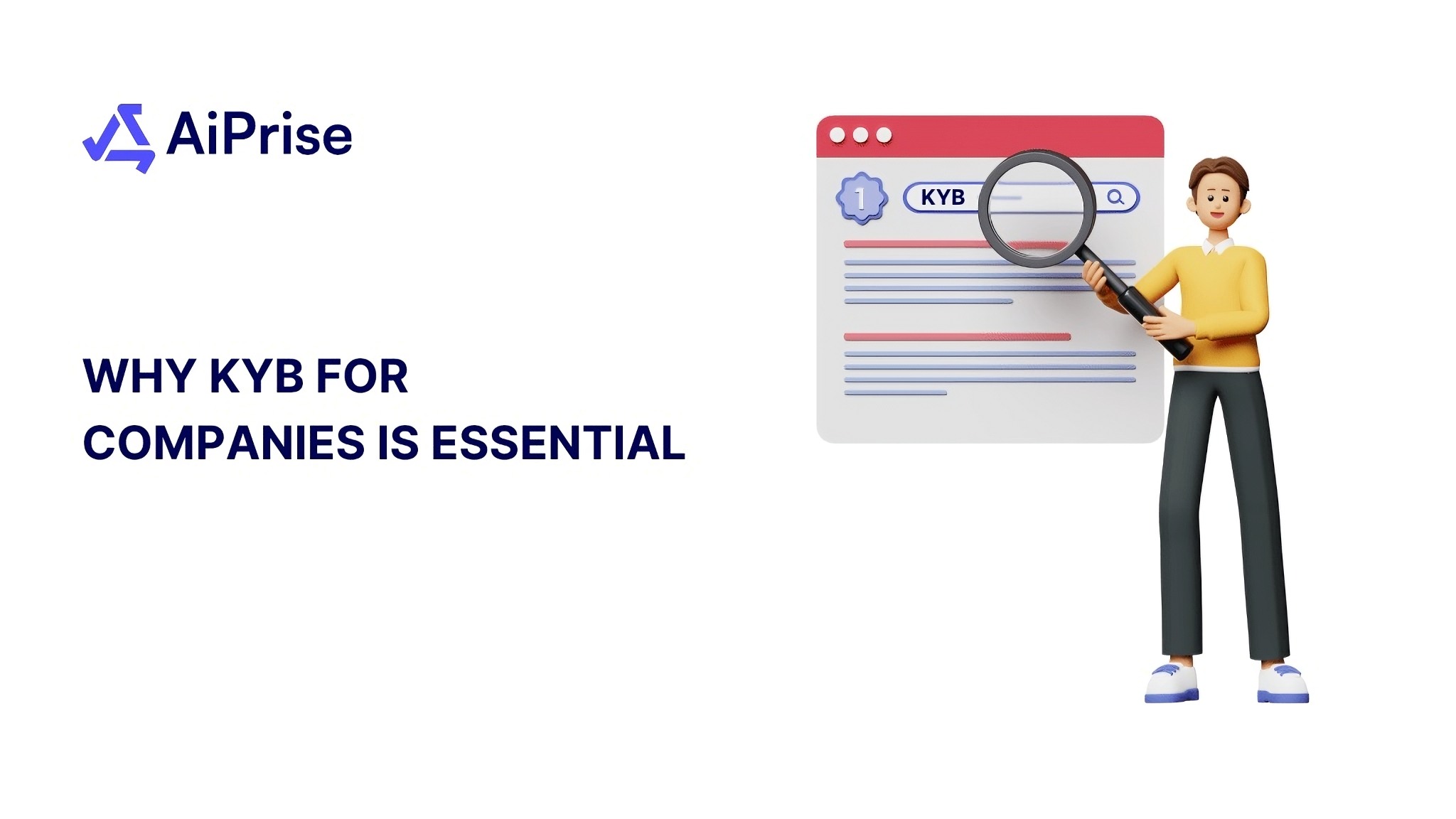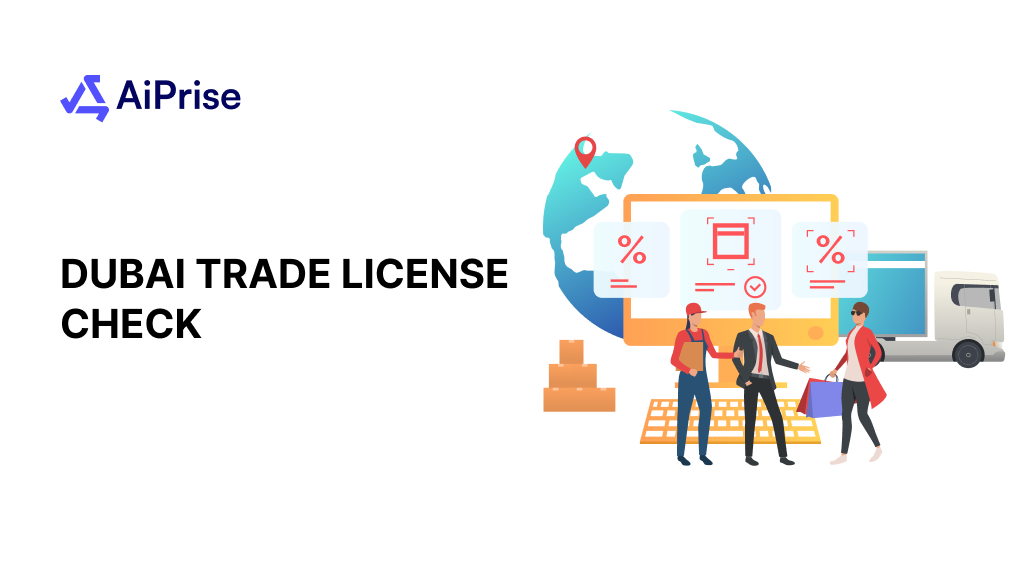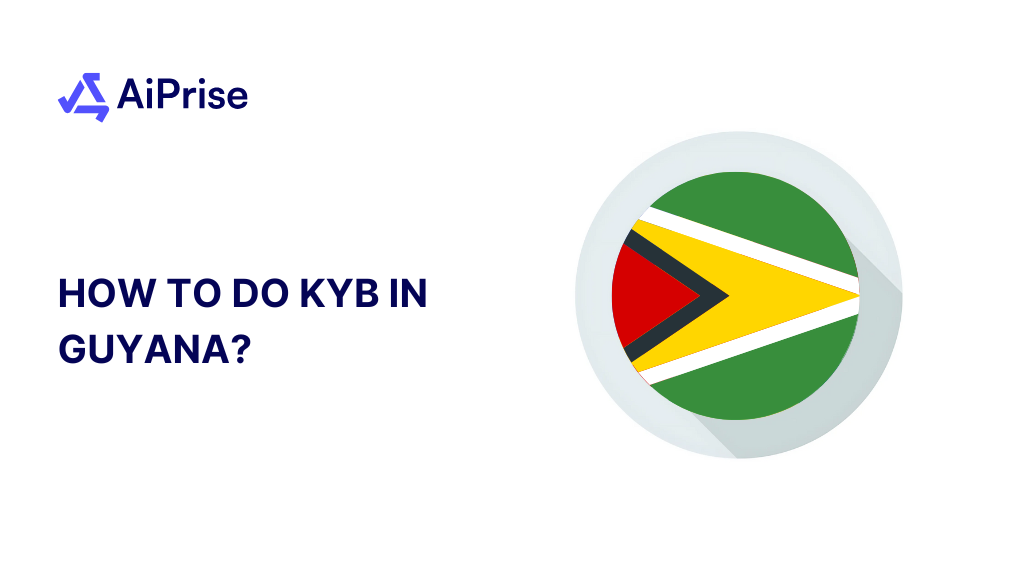AiPrise
7 mins read
May 13, 2025
How to Verify Businesses from Bhutan

Key Takeaways










As global business expansion continues to grow, financial institutions, payment providers, and cryptocurrency platforms face increasing challenges in verifying businesses across various countries. Bhutan, with its rapidly developing economy and evolving regulatory landscape, presents unique challenges and opportunities when it comes to business verification.
For those in the financial sector, including cryptocurrency platforms, verifying companies in Bhutan is not just a precaution—it's a regulatory necessity. With fraud, money laundering, and financial crimes becoming more sophisticated, ensuring that businesses in Bhutan are legitimate and compliant with both local and international standards is essential to safeguard your operations.
In this guide, we will walk you through the essential steps to verify businesses in Bhutan, understand the local business environment, and highlight the tools and resources you need to carry out thorough and accurate verification.
Importance of Verifying Businesses in Bhutan
The need to verify Bhutanese businesses stems from several factors, with the primary concern being fraud prevention and regulatory compliance. As with any growing economy, businesses in Bhutan are subject to both local and international regulatory frameworks, including Anti-Money Laundering (AML) and Know Your Customer (KYC) requirements. Failure to verify businesses properly can expose financial institutions and payment providers to significant risks, including penalties, reputational damage, and loss of trust.
Additionally, Bhutan is considered a relatively young player in the global market, with evolving business laws and financial systems. This adds an extra layer of complexity when it comes to verifying the authenticity of businesses in the region. The country has a limited history of digital business infrastructure, and some businesses may not have established global verification mechanisms.
For global companies seeking to engage with Bhutanese firms, the verification process becomes a vital step to ensure that your business partners meet the necessary compliance standards. Without a thorough vetting process, you risk exposure to fraudulent entities, which could damage your organization’s credibility and expose you to financial crime risks.
Next, let’s look at Overview of Bhutan’s Business Landscape, where we can explore the various business structures in Bhutan and how they impact the verification process.
Overview of Bhutan’s Business Landscape
Bhutan's business environment is characterized by a mix of traditional practices and modern economic policies aimed at fostering growth. The government of Bhutan has been gradually implementing reforms to encourage entrepreneurship, foreign investments, and the development of private enterprises.
Bhutan has a relatively small, yet diverse, economy that is heavily reliant on sectors such as hydropower, agriculture, and tourism. The country is also focusing on becoming a regional financial hub, which makes it increasingly important for international financial services and cryptocurrency platforms to understand the nuances of the Bhutanese business landscape.
The Bhutanese government has set up various support systems to facilitate the growth of businesses, with a clear focus on sustainability and social welfare. This unique approach to economic development emphasizes Gross National Happiness (GNH) over traditional GDP metrics, adding a layer of social responsibility to the way businesses operate in Bhutan.
As a result, verifying businesses in Bhutan requires understanding not only the financial and legal systems but also the cultural and governmental policies that shape business practices. In the following sections, we will break down the specifics of how to verify businesses in Bhutan, starting with the Bhutanese business registration system.
Registering a Company in Bhutan: An Overview

Registering a company in Bhutan offers access to a stable economy, a growing skilled workforce, and government incentives for sectors like tourism, renewable energy, and technology. The process involves several key steps:
1. Choose Your Business Structure:
- Private Limited Company (Pvt. Ltd.): Ideal for small businesses.
- Public Limited Company: Suitable for large enterprises seeking public investment.
- Sole Proprietorship: Best for individual entrepreneurs.
- Foreign Branch Office: Extension of a foreign company operating in Bhutan.
2. Reserve a Business Name:
- Check the availability of your preferred name through the Registrar of Companies (ROC).
- Ensure the name is unique and compliant with Bhutanese regulations
3. Prepare and Submit Required Documents:
- Articles of Incorporation and Memorandum of Association.
- Identification documents for shareholders and directors.
- Business address proof.
- Initial capital investment details (if applicable).
- Notarize and legalize documents through the Ministry of Foreign Affairs or Bhutanese consulates.
4. Obtain a Company Registration Certificate: Issued by the Ministry of Economic Affairs upon approval.
5. Register for Taxes and Compliance:
- Obtain a Taxpayer Identification Number (TIN).
- Register for Corporate Income Tax and VAT (if applicable).
- Ensure compliance with labor laws and employee social security contributions.
6. Open a Corporate Bank Account: Essential for managing business finances. Recommended banks include Bhutan National Bank, Bank of Bhutan, and Druk PNB.
7. Obtain Necessary Business Licenses and Permits: Certain industries may require additional approvals.
8. Set Up Payroll and HR Compliance: Ensure employees are legally contracted with appropriate benefits and salaries.
Types of Business Structures in Bhutan

Entrepreneurs in Bhutan can choose from several business structures, each tailored to specific needs and advantages. Below is an overview of the available options:
1. Sole Proprietorship
- A simple and inexpensive structure where a single individual owns and operates the business.
- The owner bears unlimited personal liability for all debts and obligations.
- Ideal for small-scale ventures but carries higher financial risks due to personal accountability.
2. Partnership
- Involves two or more individuals or entities collaborating to manage a business.
- Partners share profits, losses, and responsibilities as per the partnership agreement.
- Types of partnerships:
- General Partnership: All partners have equal liability.
- Limited Partnership: Liability is limited for certain partners based on their investment.
3. Private Limited Company
- Shares cannot be sold to the public; ownership is restricted to private shareholders.
- Requires at least two directors and adheres to specific incorporation requirements.
- The company name must end with "Private Limited."
- Suitable for businesses seeking controlled ownership without public investment.
4. Public Limited Company
- Allows the sale of shares to the general public, subject to regulations by stock exchanges and authorities.
- Requires a minimum authorized share capital, three directors, and a company secretary.
- The company name must end with "Limited."
- Ideal for large-scale enterprises looking to raise capital through public investment.
5. Overseas Company's Branch Office
- A foreign company can establish operations in Bhutan as a branch office.
- Ownership and transfer of shares are registered with the Registrar of Companies.
- Can operate as a Permanent Establishment (PE) or through joint ventures with local organizations.
Each structure offers unique benefits depending on the size, scope, and goals of the business. Entrepreneurs should carefully evaluate their needs before choosing the most suitable option
Step-by-Step Guide to Verifying a Bhutanese Business

Here's a step-by-step guide to verifying a Bhutanese business, focusing on key aspects such as documentation, registration, and compliance:
Step 1: Verify Business Registration
- Check with the Registrar of Companies: Ensure the business is registered and obtain a Certificate of Incorporation or Registration.
Step 2: Review Legal Documents
- Articles of Incorporation and Memorandum of Association: Ensure these documents are properly notarized and legalized by relevant authorities.
- Business Licenses and Permits: Verify that the business holds necessary licenses and permits, especially for industries like tourism or manufacturing.
Step 3: Confirm Tax Compliance
- Tax Payer Number (TPN): Verify that the business has a valid TIN issued by the Department of Revenue and Customs.
- Tax Certificates: Obtain a tax certificate to confirm compliance with tax obligations.
Step 4: Validate Identity and Compliance
- Verify the identity of stakeholders using trusted KYC solutions.
- Ensure compliance with labor laws, including employee registrations with the Department of Labour.
Step 5: Check Financial Compliance
- Corporate Bank Account: Verify that the business has a corporate bank account with a reputable bank like Bhutan National Bank or Bank of Bhutan.
- Financial Statements: Review financial statements to ensure transparency and compliance with accounting standards.
Step 6: Evaluate Industry-Specific Requirements
- Sector-Specific Licenses: Depending on the industry, additional licenses may be required. For example, tourism or manufacturing businesses need specific permits.
- Compliance with Local Regulations: Ensure adherence to local laws and regulations, including environmental and social responsibilities.
By following these steps, you can effectively verify the legitimacy and compliance of a Bhutanese business.
Simplifying Bhutanese Business Verification with AiPrise
Navigating the steps outlined above – from checking registration databases and reviewing legal documents to verifying tax compliance and stakeholder identities – is crucial for secure business operations.
However, performing these checks thoroughly, especially from a far or across multiple jurisdictions, can be a complex, resource-intensive, and time-consuming task. Gathering the necessary documentation, accessing local databases, and staying updated with Bhutan's evolving regulatory landscape requires significant effort and expertise.
This is where a dedicated global verification platform like AiPrise becomes invaluable. Instead of manually undertaking each step of the verification process, AiPrise offers a streamlined and automated solution.
We handle the heavy lifting by integrating access to necessary global and local data sources, including registry information and compliance watchlists, specifically tailored for markets like Bhutan.
Our platform is designed to:
- Automate Checks: Quickly verify business registration details, TPN validity, and other critical identifiers against relevant Bhutanese databases.
- Consolidate Verification: Manage KYC for stakeholders and KYB for the business entity through a single, integrated workflow.
- Ensure Compliance: Leverage up-to-date information and risk-based assessment tools to help you meet AML, KYC, and other regulatory requirements effectively.
- Reduce Manual Effort: Free up your resources by automating data collection and verification processes, allowing your team to focus on strategic decisions rather than administrative burdens.
By leveraging AiPrise, financial institutions, payment providers, crypto platforms, and other global businesses can confidently engage with Bhutanese entities. We provide the necessary tools and resources to ensure your verification processes are not only compliant but also efficient and reliable, mitigating risks and fostering trustworthy business relationships in Bhutan's unique economic environment.
Conclusion
Verifying Bhutanese businesses is crucial for secure and compliant global operations as the country integrates globally. Understanding their unique structures, registration, and compliance is paramount to mitigate fraud and financial crime risks. Robust verification practices, including checking official registrations, tax compliance, and stakeholder identities, build essential trust for sustainable relationships.
Dedicated KYB/KYC platforms and advanced technologies simplify this complex process, ensuring efficiency and accuracy. Utilizing these tools allows businesses to navigate Bhutan's verification landscape confidently, saving resources and enabling compliant engagement in this promising market. Thorough due diligence, supported by the right solutions, paves the way for secure international partnerships.
Ready to streamline your Bhutan company verification process? AiPrise offers a comprehensive, automated solution to help you confidently navigate Bhutan's regulatory landscape. Request a demo today and ensure your business stays compliant and secure.
You might want to read these...

AiPrise’s data coverage and AI agents were the deciding factors for us. They’ve made our onboarding 80% faster. It is also a very intuitive platform.










.jpg)







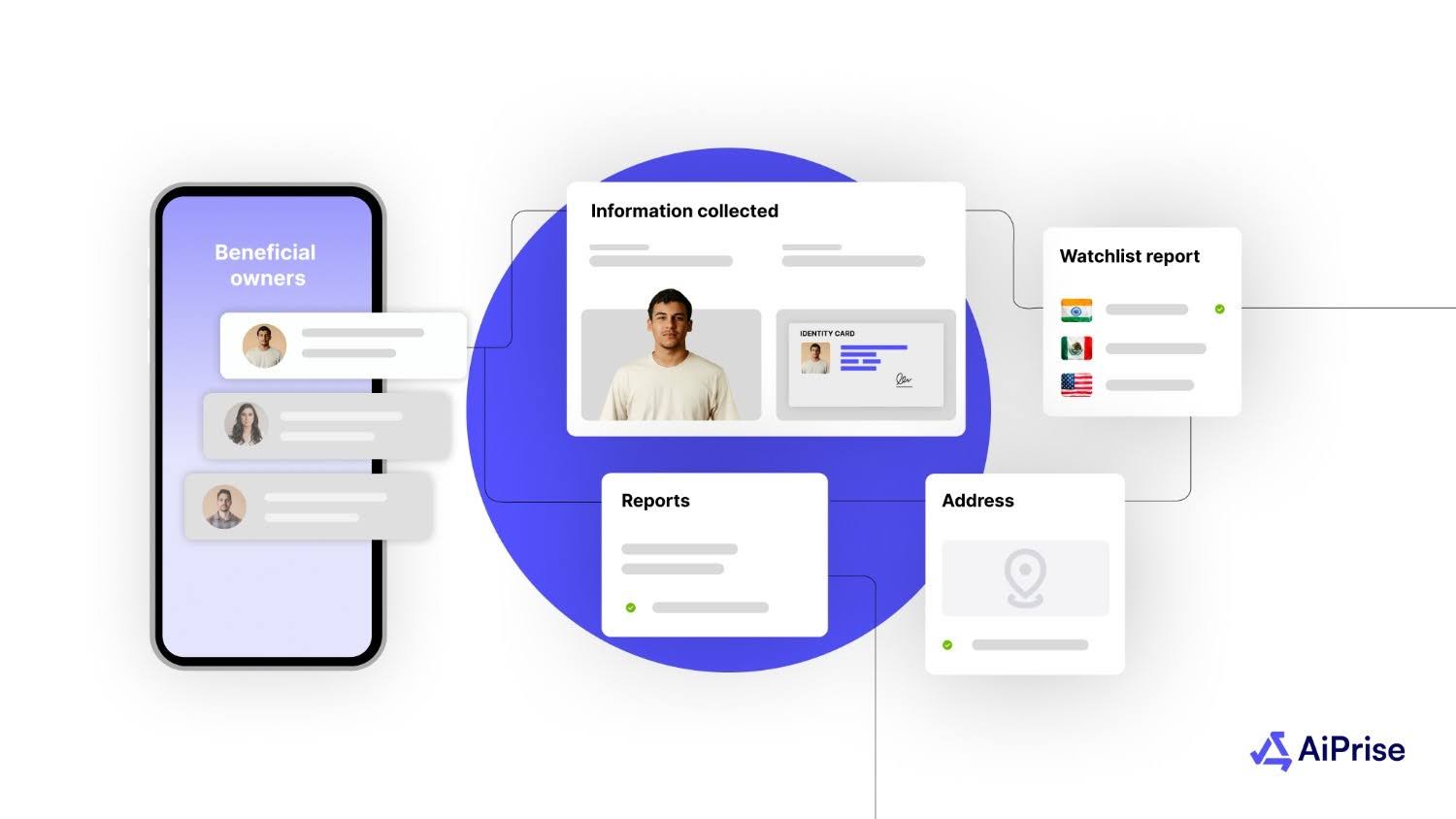
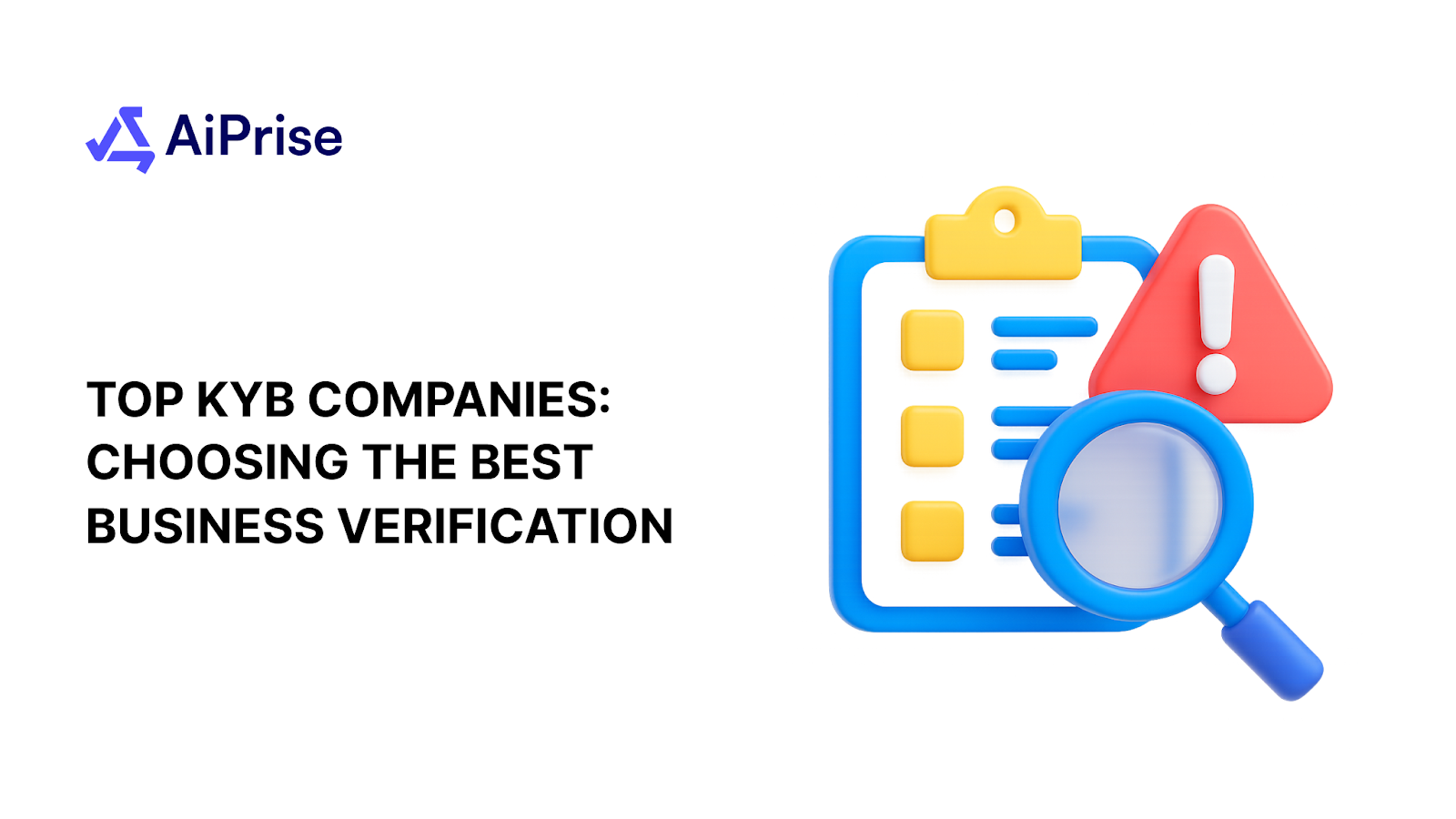
%20Can%20Improve%20Your%20Compliance%20Strategy.png)
